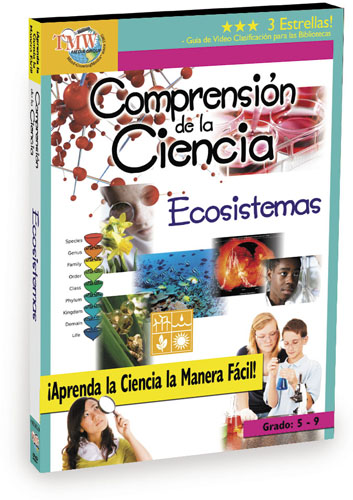The Understanding Science series is designed to aid the instructor in explaining difficult scientific concepts in an easy to understand format. The presenter Doctor Science, brings the central focus to students in a fun way that is perfect for introducing basic scientific concepts. This program explains ecosystems, realationship of plants, animals and environments, dispersal, barriers, natural community, the Biomes, artificial ecosystems and rhythms. Each program includes teaching strategy materials as well as student glossaries of the scientific terminology used in each volume. Dr. Science uses experiments that can be adapted to the classroom and easily performed along with the program.
Easy to Use, Easy to Understand! The 6-title, Understanding Science series presents difficult scientific concepts in an easy to understand and entertaining format. Core curriculum for Life Science, Earth Science and Physical Sciences. Demonstrations include easy to understand experiments that are highly appropriate for classroom environments. Lab safety procedures are also presented throughout each program. Designed for early achievers and 6th through 10th grade students as well as for high school remedial education. Contains core curriculum material. The subject matter of the series originated from intensive discussion with members of the NSTA, The National Middle School Science Teachers Association, The National Center for improving Science Education, and other professionals directly concerned with science education.

 Please wait...
Please wait...




